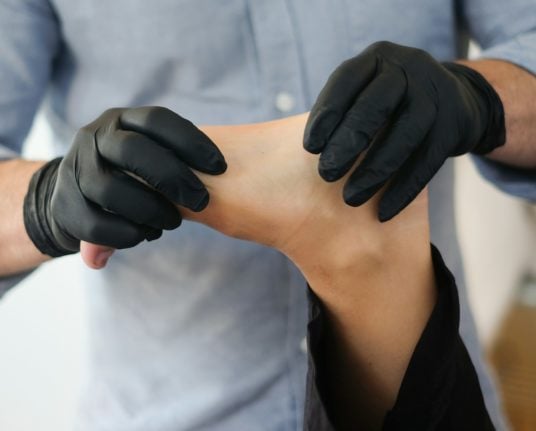Cases of Covid-19 have been rising in recent weeks with the discovery of a new variant, and the World Health Organisation has recommended that governments make efforts to ensure their populations are up to date with vaccines.
Now the Austrian government has issued new vaccination guidelines.These concern protection against illnesses including Covid-19 and a brand new vaccination for Respiratory syncytial virus, which affects the lungs and breathing passages, commonly known as RSV.
“In the past few weeks, the National Vaccination Committee has been intensively preparing to update the vaccination plan,” said the Austrian Health Ministry.
“New scientific findings were discussed as well as the recommendations of the European health authorities. This includes not only new recommendations for the corona vaccination, but also for vaccinations against RSV, meningococci and hepatitis A.”
READER QUESTION: Where can I get tested for Covid-19 in Austria?
The plans are still to be published in full, but here’s what we know so far.
What’s new when it comes to Covid vaccinations?
Austria’s National Vaccination Committee (NIG) has adapted its Covid-19 advice for residents living in Austria.
The NIG says that unvaccinated people will be protected with one jab against Covid-19, with the most up-to-date vaccines. Previously up to three doses were recommended for basic immunisation.
Meanwhile, the committee said that one top-up jab, particularly for older people and at-risk groups, was sufficient for protection this autumn and winter.
Pfizer and Moderna have both developed new vaccines which target the most recent strains of the Covid virus, known as XBB.1.5, and the European Medicines Agency approved these for use within the EU on August 30th.
The adapted vaccine is expected to be released in Austria this week.
Why is only one injection needed when more were recommended previously?
Experts say that the population has built up strong immunity against coronavirus since the beginning of the pandemic in 2020.
“The immunity of the population enables a new vaccination recommendation,” said the Austrian Health Ministry.
“For the best possible protection against a severe course of the disease from Covid-19, one vaccination in the coming autumn is sufficient – regardless of whether basic immunisation has already been carried out,” said the Health Ministry.
“In line with the recommendations of the European health authorities, it can be assumed that previously unvaccinated people will also be adequately protected by a single vaccination with the new variant vaccines.”

Health Minister Johannes Rauch added: “Even if we have largely left the corona pandemic behind us, the virus is still there.
“After three years of the pandemic, however, the framework conditions have changed significantly: immunity is significantly higher, vaccines and Covid-19 drugs are available to us. It is still the case that vaccination is the best protection. From serious illnesses and from Long Covid.”
Experts urged people to speak to their GPs to get advice.
Katharina Reich, Austria’s Director General for Public Health, said: “With the existing immunity within the population, one vaccination will in future be sufficient for effective protection against serious illnesses.
“I recommend everyone to get information from their doctor in good time.”
Who should get a top-up Covid vaccination?
Austria’s National Vaccination Committee recommends that everyone over the age of 12 receive a jab in autumn with the updated vaccines.
Vaccination is particularly recommended for people over the age of 60, people who are at increased risk of developing severe illness with Covid and health workers.
Babies can also get the vaccination after a consultation with a doctor.
Vaccines in Austria are available from many doctors as well as public vaccination points.
Vaccine against RSV available for the first time
This year, for the first time, the European Commission has approved two vaccines for RSV for adults.
Austria’s National Vaccination Panel recommends vaccinations against RSV for adults aged 60 and older.
To date, there has been no jab to protect against lower respiratory tract infections caused by RSV. The vaccines are expected in Austria in the coming weeks.
“Last autumn we clearly saw that not only corona, but also RSV and influenza cause many serious diseases that can overload Austrian hospitals,” said Health Minister Rauch. “I am therefore particularly pleased that we will have vaccines available for all three serious respiratory diseases for the first time this fall.”
When it comes to Influenza (flu), people in Austria can get a top-up jab every autumn/winter, with many adults paying a fee for it. Arrange a consultation with your doctor to see if any vaccinations are recommended to you.
The National Vaccination Committee has also updated the previous recommendations for vaccinations against meningococci and hepatitis A.
Vaccination against hepatitis A is no longer generally recommended, instead it is only recommend only under certain conditions, such as for travel.
Meanwhile, in future vaccination against meningococci ACWY will also be recommended from the age of one, replacing the vaccination against meningococci C.




 Please whitelist us to continue reading.
Please whitelist us to continue reading.
Member comments